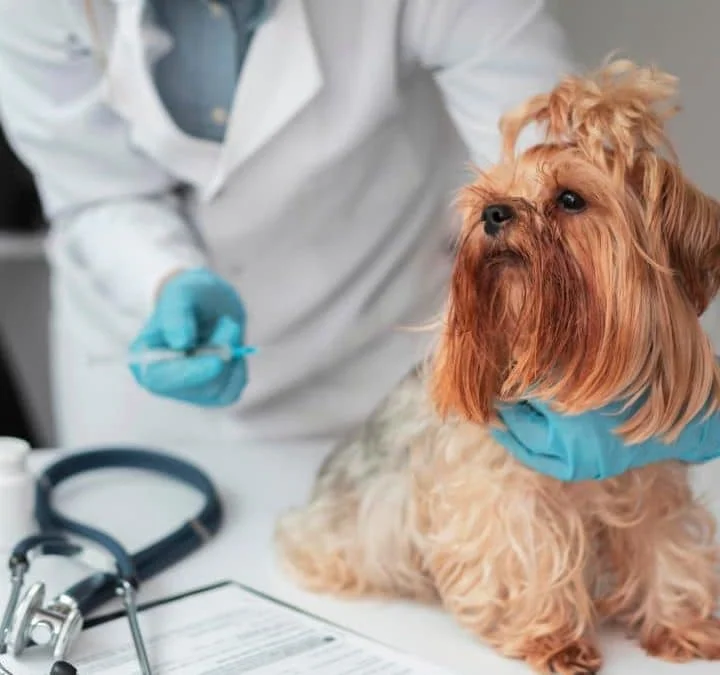Dog vaccination helps your canine protecting from a different severe illness. Vaccination against any or all diseases is normal in dogs. It is critical to ensuring that your pet lives a long and happy life. Your veterinarian will recommend a vaccine schedule that is both healthy and effective for your pet. Commonly, the dog vaccination is divided into core vaccines- which are required by all dogs and puppies, and non-core vaccines- which is a lifestyle vaccine. However, it’s important to talk to your vet about the best dog vaccine schedule for your dog.
Here’s the guide on what dog owners should know about the need for vaccinations for their pets and how the dog vaccination schedule functions.
Why Vaccination Is Important For Dogs
Vaccinations are an essential part of keeping your pet safe. Proper dog vaccination will protect your family from spreading several diseases like rabies. It can also prevent common dog diseases and save money by avoiding expensive therapies for animal diseases that should have been avoided.
Studies say that vaccines have saved millions of animals’ lives and stopped the disease in the last century. While breakdowns in safety do occur, the majority of successfully vaccinated pets never display signs of illness, this shows how important vaccination plays in your pet’s preventive health care.
Core Vaccines And Non-Core Vaccines
Core vaccines are considered essential for all canines. Depending on the risk of spreading, the seriousness of diseases, and the transmission of diseases to other species and humans, core vaccines are considered to be crucial for your pooch.
Lists of core dog vaccines:
- Rabies is an infectious viral disease that affects the nervous system and kills people.
- Distemper is an infectious disease that affects the respiratory and gastrointestinal tracts, as well as the nervous system. It is often fatal.
- Canine parvovirus is a virus that causes excessive vomiting and diarrhea in dogs and is potentially lethal.
- Parainfluenza is a respiratory viral infection that can play a role in the production of kennel cough.
Non-Core Vaccines are provided when the dog’s lifestyle or geographic location necessitates them. It is optional and given based on the dog’s risk of exposure. Several non-core vaccines protect against diseases that are extremely infectious or may be fatal.
Lists of Non-core dog vaccines:
- Bordetella causes inflammation of the upper respiratory tract of dogs leads to coughing and sickness.
- Leptospirosis is a bacterial infection that affects the kidneys and liver, among other organs, and can be fatal. Your veterinarian will advise you about whether or not your dog needs this vaccine.
- Lyme disease is a bacterial infection transmitted by ticks that can lead to arthritis and other complications, including kidney disease.
- Even though vaccinating against Giardia can only prevent cyst shedding, not an infection, AAHA recommends against vaccinating for Giardia.
- Canine influenza is a virus that causes flu-like symptoms in dogs and is highly infectious while they are in close contact.
If your dog has one or more disease risk factors, speak to your veterinarian about vaccines. Your veterinarian will go over the non-core vaccinations in-depth with you and work with you to create a vaccination plan that will protect your pet from a serious illness.
Dog And Puppy Vaccination Schedule
Certain vaccines may be given to adult dogs once a year, while others may be given every three years or longer.

Puppies should begin receiving vaccines at the age of six to eight weeks. At least three vaccines should be provided at three- to four-week intervals by a veterinarian. At 16-17 weeks of age, the final dose should be given.

What Is The Risk Of Dog Vaccination?

Vaccinations can have side effects, just like any other medication or immunization regimen. Mild side effects, much as with human vaccines, can be overlooked. If you see signs of a more serious reaction to puppy or dog vaccines, such as facial swelling, vomiting, or lethargy, call your doctor right away.
Common symptoms that dog shows after vaccination:
- Fever
- Drowsiness
- Loss of appetite
- Facial or paw swelling and/or hives
- Vomiting
- Diarrhea
- Pain or swelling around the injection site
- Collapse, difficulty breathing, and seizures (anaphylactic shock)
Call your doctor right away if you think your pet is having an adverse reaction to a vaccine.

